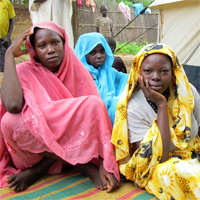
Two new states—not one—joined the ranks of the international community on July 9, 2011, the day that marked the official independence of South Sudan from the remaining northern two-thirds of the country. Much attention has been focused on the obstacles that the new South Sudan will face. Less has been said of the fragility and potential for mass conflict that exists in what will be left of Sudan itself, and the policy changes needed to address this reality.
Since its independence, Sudan has experienced more years of violence than peace. Decades of misguided government policies under multiple regimes have economically and politically favored the Arab Riverine people while trying to impose a singular Arab-Islamic identity over what is an ethnically, religiously, and culturally diverse population. In the process, many communities have been left aggrieved and disenfranchised, which on numerous occasions has triggered violent rebellion, particularly on Sudan’s peripheries. But instead of political reform or decentralization of power, Sudanese governments have consistently employed a strategy of divide and conquer, often accompanied by violent oppression. The consequences of these tactics were most vividly illustrated by the human devastation of the genocide in Darfur and the North-South civil war, and continue today in the Nuba Mountains. More generally, this strategy has resulted in a chronically unstable Sudanese state, a situation that secession does not change.
The international community’s robust push for southern independence, while successful, has been the continuation of a long-standing piecemeal approach to Sudan that addresses the symptoms, rather than the root causes of the country’s conflicts. Such an approach, marked by multiple peacekeeping missions and peace talks, has not achieved lasting or comprehensive peace throughout all of Sudan.
The international community must rethink its strategy vis-à-vis the North by pushing for a comprehensive approach that is inclusive of all of Sudan’s regions and addresses the national issues that lie at the heart of all of Sudan’s fissures. The fundamentally similar grievances that exist across Sudan’s peripheries must be addressed on the national level, starting with an inclusive constitutional process that brings talks taking place between the government and these peripheral communities into a single conversation. Without this necessary shift in policy, sustained peace and stability in both Sudans and the larger region will be impossible.
Southern secession ushers in an opportunity to begin to do this. The confluence of heightened economic pressures and political energy represents a moment of political reconfiguration in Sudan which could force the ruling National Congress Party, or NCP, to rethink its strategy going forward. The international community should do the same.

